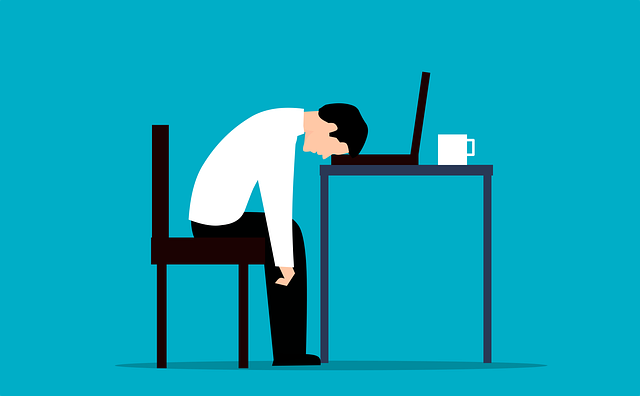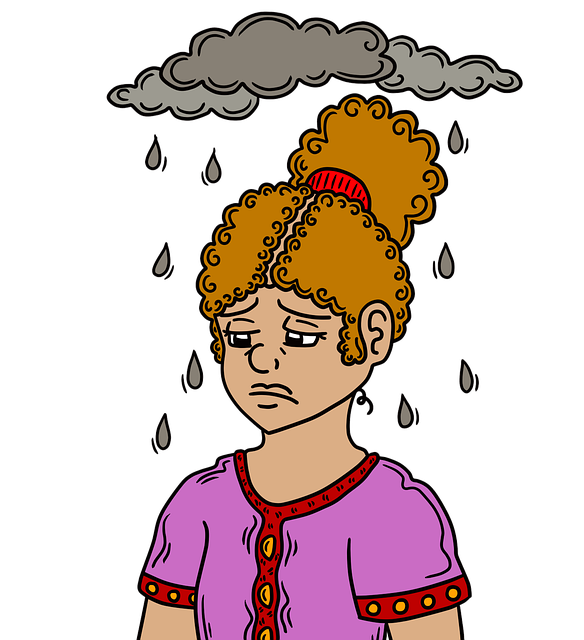Depression is a serious global health concern marked by persistent sadness, loss of interest, changes in appetite, sleep disturbances, fatigue, and even suicidal thoughts. Depression therapists play a crucial role in managing symptoms through evidence-based therapies like CBT, IPT, and mindfulness techniques, offering personalized treatment plans. These therapists create safe spaces, identify triggers, develop coping strategies, and empower clients with tools for long-term wellness. Key approaches include CBT, IPT, MBCT, and ACT, focusing on different aspects of mental health. A strong therapeutic alliance is vital, involving trust, open communication, and collaboration in setting achievable goals. Medication, such as SSRIs and SNRIs, is also a significant tool when prescribed by a depression therapist as part of a holistic treatment plan. Regular sessions with dedicated therapists emphasize long-term support, preventing relapse, and fostering stability through coping strategies and emotional processing.
Depression management therapy is a crucial step towards reclaiming one’s life. Understanding depression and its profound impact on daily functioning is essential. This article explores various aspects of effective treatment, including the role of trained depression therapists, who provide guidance through different therapeutic approaches. Learn about building a strong therapeutic alliance, coping strategies, lifestyle changes, medication options, and long-term support—all vital components in navigating depression and fostering resilience.
Understanding Depression and its Impact

Depression is a complex mental health disorder that significantly impacts an individual’s daily life and overall well-being. It goes beyond mere sadness or temporary feelings of low mood; it is characterized by persistent feelings of profound despair, loss of interest in activities once enjoyed, changes in appetite and sleep patterns, fatigue, difficulty concentrating, and in severe cases, recurrent thoughts of death or suicide. This condition can affect people of all ages, backgrounds, and lifestyles, making it a significant public health concern worldwide.
Seeking help from depression therapists is a vital step towards managing this disorder. These professionals are equipped with the knowledge and skills to provide effective treatment options, such as cognitive-behavioral therapy (CBT), interpersonal therapy (IPT), or mindfulness-based approaches, tailored to each individual’s unique needs. Through therapy, individuals can gain insights into their depression, develop coping strategies, and learn to manage triggers, ultimately leading to improved symptoms and a higher quality of life.
The Role of Depression Therapists in Treatment

Depression therapists play a pivotal role in helping individuals navigate and overcome their mental health struggles. Through various therapeutic techniques, they guide patients towards understanding and managing their symptoms effectively. These professionals are trained to create a safe, non-judgmental space where clients can openly discuss their feelings, fears, and experiences. During sessions, depression therapists employ evidence-based practices tailored to each person’s unique needs.
They assist in identifying triggers, developing coping strategies, and fostering healthier thought patterns. The goal is not only to alleviate symptoms but also to empower individuals with the tools needed for long-term wellness. With their expertise, support, and encouragement, depression therapists help clients regain a sense of control, improve their overall quality of life, and cultivate resilience in the face of challenging emotions.
Types of Therapy for Effective Depression Management

Depression management therapy offers a range of effective approaches, tailored to individual needs by depression therapists. Among the most common and successful types are Cognitive Behavioral Therapy (CBT), which focuses on identifying and changing negative thought patterns and behaviors; Interpersonal Therapy (IPT), centered around improving relationships and social functioning; and Psychodynamic Therapy, exploring unconscious thoughts and emotions.
Additionally, Mindfulness-Based Cognitive Therapy (MBCT) combines CBT with mindfulness practices to prevent depressive relapses, while Acceptance and Commitment Therapy (ACT) encourages individuals to accept difficult feelings while pursuing meaningful goals. Each therapy type provides unique tools and insights, allowing depression therapists to craft personalized plans for managing symptoms and enhancing overall well-being.
Building a Therapeutic Alliance with Your Therapist

Building a strong therapeutic alliance is a fundamental aspect of effective depression management therapy. This means fostering a deep connection and mutual understanding between you and your therapist. It’s about creating a safe space where you feel comfortable sharing your thoughts, emotions, and experiences without fear of judgment. A good therapist will actively listen, validate your feelings, and provide a supportive environment that encourages open communication.
This alliance is built on trust, respect, and shared goals. Your therapist should work collaboratively with you to understand your unique situation, set achievable treatment objectives, and tailor strategies specifically for your needs. Regularly expressing your concerns, expectations, and feedback is essential to ensure the therapy process aligns with your aspirations and promotes positive change in managing your depression.
Coping Strategies and Lifestyle Changes

Many individuals undergoing depression therapy benefit from learning effective coping strategies and adopting lifestyle changes recommended by their depression therapists. These can include practices like mindfulness meditation, regular physical exercise, maintaining a balanced diet, and prioritizing quality sleep. Such habits not only support overall well-being but also serve as powerful tools to manage symptoms of depression.
Additionally, engaging in activities that foster social connections, setting realistic goals, and practicing self-care are crucial components of coping strategies. Depression therapists often guide clients in identifying personalized techniques that help navigate challenging emotions, reduce stress, and enhance resilience. Incorporating these changes into daily routines can significantly contribute to a more positive and balanced mental state.
Medication Options and Their Effects

Medication plays a significant role in depression management, often prescribed by depression therapists as part of a comprehensive treatment plan. Selective Serotonin Reuptake Inhibitors (SSRIs) are commonly used as they increase serotonin levels in the brain, improving mood and reducing symptoms. Side effects may include nausea, insomnia, or sexual dysfunction, but these typically lessen over time. Another class of medications, Serotonin-Norepinephrine Reuptake Inhibitors (SNRIs), works similarly by boosting these neurotransmitters, offering potential relief for those not responding to SSRIs.
The impact of medication can vary from person to person, and finding the right fit might involve trial and error. Depression therapists often monitor patients’ progress and adjust medications accordingly. It’s crucial to discuss any concerns or side effects with a therapist or healthcare provider, as they can provide guidance and support throughout the process.
Long-term Support and Maintenance

Depression management therapy often involves a commitment to long-term support and maintenance, working hand-in-hand with dedicated depression therapists. This sustained approach is crucial for managing symptoms effectively and preventing relapse. Regular sessions with a therapist can provide ongoing guidance, help individuals develop coping strategies, and offer a safe space to process emotions over an extended period.
Through regular check-ins and continuous support, maintenance therapy ensures that individuals remain on track with their mental health goals. Depression therapists may employ various techniques, such as cognitive behavioural therapy (CBT), interpersonal therapy (IPT), or mindfulness practices, to help clients maintain progress, adapt to new challenges, and cultivate resilience in the face of life’s ups and downs. This ongoing support is vital for fostering stability and promoting a healthier, more balanced lifestyle.
